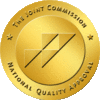Drug addiction is a complex condition that impacts millions of lives in America. The American Society of Addiction Medicine defines addiction as “a treatable, chronic medical disease involving complex interactions among brain circuits, genetics, the environment, and an individual’s life experiences.” When using drugs, you may experience a lack of control over when and how much you use, overwhelming urges to use, and physical or mental cravings which make it difficult to stop.
Drug Addiction


Drug Addiction
What is drug addiction?
Singer Island Health offers solutions if you are struggling with a substance use disorder. Our evidence-based programs meet the highest standards for care and treatment. Whether you have tried to stop using drugs on your own, had a period of recovery, and began using again, or it’s your first time seeking help, we are here and ready to help you reclaim your life.
Drug Use Statistics
The 2019 National Survey on Drug Use and Health reported that 57.2 million people in the United States, or 20.8% of the population aged 12 and older, had used illicit and/or prescription drugs. Almost half of the people, 20.4 million, met the clinical criteria for an alcohol use disorder and 2.4 million people met the criteria for both.
Many people who have a substance use disorder (SUD) also struggle with mental illness. Of the 51.5 million Americans living with mental illness, 9.5 million also struggle with an alcohol and/or substance use disorder.
The numbers for people receiving treatment are shockingly low. If you are seeking help, we are ready to help you. A call to one of our admissions representatives will connect you with someone who cares and can help you find the treatment you need.
Why do people take drugs?
Drug use starts for many reasons, and it’s impossible to pinpoint one because each person has their own life experiences, which can lead to using drugs. Some common causes include:
Your path to recovery is waiting
and we’re here to help.
Our admissions specialist are available 24/7 to listen to your story
and get you started with next steps.
Why call us?
- The euphoric feelings associated with a particular drug
- Improving your mood or relieving stress
- Improving performance by using a stimulant
- Peer pressure and experimentation
- Self-medicating which is using a drug to improve symptoms of a mental health disorder
Risk factors for addiction?
Currently, there is no test you can take that will tell you before using drugs that you may or may not become addicted. There are, however, common risk factors that fall into several categories, including genetics or biology accounting for forty to sixty percent of risk, environment, and the emerging field of epigenetics.
Biology
DNA is the genetic code that is passed from parent to child. If your parents struggled with alcohol or substance use, there’s a forty to sixty percent risk of your developing one.
Environment
The environment is the people, places, and things in your life that you grew up with or are currently around. While growing up, an environment where drug use is common is a risk factor for developing a substance use disorder. Other impactful factors include parental supervision and involvement, childhood trauma, family mental illness, and availability of drugs.
Epigenetics
Epigenetics can be defined as the relationship of the environment on genes, which can trigger changes in genetic proteins. It helps to think of this as turning on a switch. This means that external influences, such as choices and environments, can make changes in your genes. These factors act as the switch, which may increase your likelihood of developing a substance use disorder.
Recognizing signs of drug use or intoxication
Family and friends may be the first to notice changes in behaviors and physical appearance, which are signs of drug use. These can include:
- Personality changes, including mood swings
- Bloodshot eyes
- Pinpoint pupils
- Changes in routine
- A decrease in self-care, such as showering or eating habits
- Financial problems
- Interpersonal problems, such as issues with family or friends
- Being fired or quitting a job
- Track marks (signs of injections)
- Legal troubles
- Spending time with a circle of friends who are also using drugs
What drugs are addictive?
Cocaine
Cocaine is made from the leaves of the South American coca plant. It is a stimulant that causes increased energy and is a Schedule II drug, which means it has a high potential for abuse. It comes as a white powder that can be snorted, smoked, or injected. Health risks from cocaine include:
- Nasal damage
- Chronic nosebleeds
- Strokes
- Brain hemorrhage
- Heart Attack
- Risk of addiction for babies if used during pregnancy
Crack cocaine
Crack cocaine is a stimulant made from cocaine. It is a highly addictive form of cocaine that has been processed to resemble a small rock. It produces an immediate short-term high, and its use can quickly lead to addiction to continue the drug’s euphoric feeling. Because it is a form of cocaine, this drug carries the same risks as other forms of cocaine.
Crystal Meth
Crystal Meth is a highly addictive stimulant that is chemically similar to amphetamines (legally prescribed). Meth impacts the central nervous system and causes an intense and overwhelming rush of energy and euphoria from the first time you use it. This drug has no legal uses and can look like a shiny rock or glass fragment. It can be snorted, injected, or smoked.
Health risks from using crystal meth include:
- Increased boy temperature leading to overdose
- Increased heart rate
- Increased blood pressure
- Psychosis due to lack of sleep
- Dental problems
- Delusions
- Paranoia
- Sharing needles for IV use increases the risk of HIV and Hepatitis C
Fentanyl
Fentanyl is a medical opioid that acts on the dopamine receptors in your brain and provides a feeling of euphoria. This powerful drug is often mixed with other drugs such as heroin, crack cocaine, counterfeit pills, and more. It’s impossible to visually tell if fentanyl is combined with other drugs, which leads to an increase in the risk of overdosing and the risk of death.
Short-term effects include:
- Confusion
- Slurred speech
- Decreased concentration
- Overdose
- Reduction in brain mass
- Brain damage
Heroin
Heroin is a highly addictive drug made from opium poppy plants that produces an intensely pleasurable feeling by acting on the brain’s dopamine receptors. In addition to its addictive nature, heroin users are at risk of an overdose by taking too much, resulting in death or permanent injury. It can be smoked, snorted, or injected intravenously.
Health impacts of heroin include:
- Slowed respiration
- Nausea and vomiting
- Collapsed veins for intravenous (IV) users
- Abscesses at injection sites
- Heart infection
- Liver damage
- Kidney disease
- Overdose leading to death
Overdose deaths are a reality across the country. An overdose can happen when you take too much, or you take heroin that has been mixed or cut with unknown substances. You can overdose, no matter how you take the drug, because an overdose is not related to how you use it but what you are using.
Signs of an overdose:
- Loss of consciousness
- Bluish skin tone from lack of oxygen, especially around lips and fingernails.
- Choking sounds
- Nonresponsive to light or sound
- Vomiting
Kratom
Kratom is a plant with relaxing effects and is thought to act on opioid receptors; thus, many people use it as a substitute for opioids or ease the symptoms of opioid withdrawals. While many see it as a safe alternative to opioids, its use is unregulated in the US. It can be legally purchased in Kratom/Kava Bars, ordered online, or purchased as a health supplement. Kratom has many effects:
- Loss of appetite
- Nausea
- Dizziness
- Hallucinations (with long-term high dose usage)
- Insomnia
- Weight-loss
Withdrawal symptoms, especially if you are using more than five grams a day or taking it more than three times a day
Marijuana
Marijuana contains the leaves, flowers, stems, and seeds from the hemp plant. Using marijuana results in a state of euphoria, an altered state of mind, and impaired short-term memory. Though legalized in many states, marijuana can still be misused. It can be smoked, vaped, or eaten. Effects include:
- Problems with coordination
- Increased heart rate
- Anxiety and paranoia
- Mental health issues
- Chronic coughs
- Respiratory infections
- Permanent brain changes if you started using at a young age
MDMA/Molly
MDMA/Molly are synthetic drugs that combine the effects of a stimulant and hallucinogen. They produce effects such as increased energy, pleasure, and distorted time and sensory perceptions. Risks of use:
- Elevated body temperature which can lead to overdose
- Kidney failure
- Depressions
- Problems with attention and memory
- Increased impulsivity
Synthetics
Synthetics can be divided into synthetic cannabinoids such as Spice or K2 and cathinones such as “bath salts.” Both can produce intense highs and are unpredictable in their effects on people. Synthetic cannabinoids are smoked and are unpredictable in their effect on you. Some side effects include:
- Hallucinations
- Paranoia
- Confusion
- Extreme agitation
Bath salts usually over-the-counter cleaners that should never be ingested. Common ways to take them include smoking, swallowing, and IV. Effects are similar to synthetic cannabinoids and also include:
- Risk of HIV or hepatitis from sharing needles
What are Tolerance and Dependence?
Tolerance and dependence are physical aspects of drug use. Having one or the other does not necessarily mean you have a substance use disorder; however, they are essential to understand.
Tolerance
Tolerance develops when your body starts reacting differently to drugs, and you need a higher dose at a greater frequency to feel the effects you did when you started using a drug.
Dependence
Dependence can be a physical symptom of drug use where the drugs have impacted your body, so that stopping causes intense physical and mental symptoms. These can include mood swings, anxiety, sweating, vomiting, and body aches.
Withdrawal
If you’ve suddenly stopped using drugs or alcohol, you may experience withdrawal symptoms because of physical dependence on a drug. Drugs that can cause withdrawals include:
Alcohol
- Restlessness
- Shaking and tremors
- Insomnia
- Trouble concentrating
- Seizures (can be life-threatening)
- Delirium (can include hallucinations and disorientation)
Opioids/Opiates
- Abdominal cramps
- Nausea
- Anxiety
- Sweating
- Fast pulse (tachycardia)
- Fevers
- High blood pressure
Benzodiazepines
- Anxiety
- Insomnia
- Restlessness
- Agitation and irritability
- Poor concentration and memory
- Muscle tension and aches
- Seizures (can be life-threatening)
- Delirium (can include hallucinations and disorientation)
Stimulants
- Depression
- Insomnia
- Irritability
- Fatigue
- Paranoia
- Cravings
- Poor concentration
Treatment For Withdrawals
Singer Island’s medically monitored detox is a safe way to stop using drugs. Many drugs cause physical withdrawal symptoms. These can be life-threatening, including seizures, erratic heart rate, and blood pressure changes. This is especially true for alcohol and benzodiazepine withdrawals.
We provide medical monitoring, medications to ease symptoms, and support for you as you safely withdraw from drugs. No matter the drugs you have been using, we are available to help you get the treatment to begin the process of healing and recovery.
What kinds of treatment are available to me?
The most effective treatment programs are grounded in evidence-based practices, provide treatment for co-occurring disorders, and assess and adapt your treatment plan as your needs change. Singer Island Health prides itself on its unique approach to treatment. A call to one of our admissions representatives can start your recovery at Singer Island.
At Singer Island Health we offer:
- Medically monitored detox services
- Residential (inpatient) drug and alcohol treatment
- “Talk Therapy” or behavioral counseling in groups or one-on-one.
- Medication management
- Evaluation for co-occurring disorders.
- Treatment for conditions such as anxiety, depression, or trauma
- Long-term planning and follow-up to prevent relapse.
Can addiction be treated successfully?
Substance use and co-occurring disorders can be successfully treated. Research that tracked individuals receiving treatment for substance use disorders showed that people were likely to stop their drug use, improve their relationships with family and friends, and experience an overall improvement in their mental health.
How to Help a Friend or Family Member
No one wants to see a loved one struggle with a substance use disorder. You may feel helpless and angry as you watch their lives spiral out of control. Sadly, many people who are addicted to drugs don’t know the harm they are causing themselves and others. While they need to decide to get help, you can talk to them to let them know you are worried.
When you talked to a loved one, speak to them privately. It’s helpful to do this when they are not high or feeling withdrawals. Since you are talking about how you feel, try and use “I” statements about how their drug use impacts you. Your loved one may not know how you are feeling. Hearing about how their use affects you may be what they need to hear to seek help.
If you seek help for a loved one, our admissions representatives can talk to you any time. Many on our team are in recovery themselves. They are compassionate, understanding and will answer your questions, as well as verify insurance. We are here for you and your loved one 24/7, and your call is always confidential.
